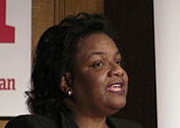Hospitalised patients more satisfied when given chance to discuss faith and religion
 Hospitalised patients who are able to talk about their religious and spiritual concerns are more satisfied with their care, but one-fifth are not given the chance to have these discussions, researchers in Chicago have found.
Hospitalised patients who are able to talk about their religious and spiritual concerns are more satisfied with their care, but one-fifth are not given the chance to have these discussions, researchers in Chicago have found.
The authors of the new study, published online on 1 July in the Journal of General Internal Medicine, compiled information on the spiritual concerns of more than 3,000 patients hospitalized over a three-year period, and had the patients rate their sense of satisfaction with their overall hospital care.
The study found that 41 percent of patients had religious or spiritual concerns they wanted to talk about while in the hospital. These discussions took place among 32 percent of all patients.
The study also pointed out that the patients did not care who spoke with them about their religious concerns. What mattered most was just having the discussion. Most of the patients, 61 percent, spoke with a chaplain, 12 percent with a member of their own religious community, 8 percent with a doctor and 12 percent spoke with other people.
Half of the patients who wanted a discussion, however, did not get to have one (20 percent of patients, overall), the researchers pointed out. Meanwhile, one in four who said they did not want a conversation about spiritual issues had one anyway.
Regardless of whether healthcarewell phentermine they wanted the religious discussion or not, those that did reported being more satisfied with their overall level of care while in the hospital, the researchers noted.
The study’s authors concluded, ‘These data suggest that many more inpatients desire conversations about R/S than have them. Health care professionals might improve patients’ overall experience with being hospitalized and patient satisfaction by addressing this unmet patient need.’
This new research follows several recent endorsements of various aspects of spiritual care by doctors’ leaders in the UK.
The General Medical Council and Medical Defence Union have recently endorsed ‘tactful’ offers of prayer by GPs and the GMC has also confirmed the appropriateness of sensitive faith discussions with patients.
Professor Mike Richards, national clinical director for cancer and end-of-life care, said at the recent launch of the new RCGP end of life charter that it was important that patients at the end of their lives should be offered spiritual support from GPs if they wanted it.
And RCGP clinical champion for end-of-life care Professor Keri Thomas said that spiritual care was ‘essential’ for end-of-life care.
These developments suggest that those who are not providing spiritual care are practising sub-optimal medicine and also that doctors who have no faith are not exempt from this responsibility.












Leave a Reply
Want to join the discussion?Feel free to contribute!